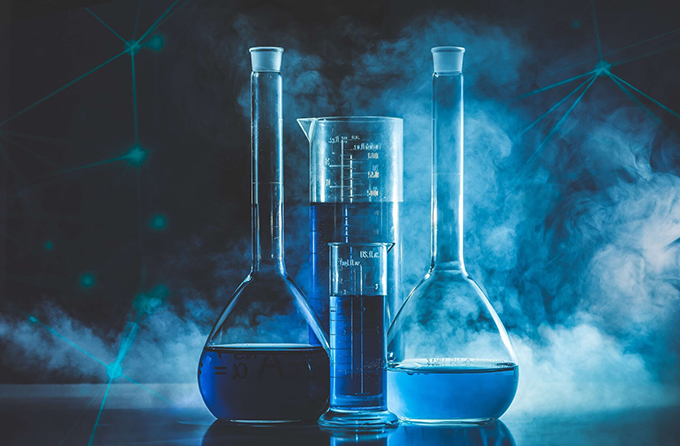Tel: +86-187-9020-1113 E-mail: leo@flypower.top bob@flypower.top
English
- All
- Product Name
- Product Keyword
- Product Model
- Product Summary
- Product Description
- Multi Field Search
Views: 1 Author: Site Editor Publish Time: 2024-08-23 Origin: Site












Introduction
Cold chemistry, a branch of chemistry focused on chemical reactions occurring at extremely low temperatures, has seen significant advancements in recent years. These low-temperature processes are crucial for studying reaction dynamics, quantum effects, and the behavior of molecules in interstellar space. Among the various compounds used in cold chemistry, perchlorates have emerged as essential reagents due to their unique properties. This article explores the role of perchlorates in cold chemistry, their specific applications, and the advantages they offer in facilitating low-temperature reactions.
Understanding Perchlorates
Perchlorates are a group of chemicals characterized by the presence of the perchlorate anion (ClO₄⁻). Common examples include ammonium perchlorate (NH₄ClO₄), sodium perchlorate (NaClO₄), and potassium perchlorate (KClO₄). These compounds are highly oxidizing and are often used in various chemical and industrial processes, including propellants, explosives, and pyrotechnics. In cold chemistry, their role is more specialized, focusing on their ability to act as oxidizers or sources of energy in reactions conducted at low temperatures.
Role of Perchlorates in Cold Chemistry
In cold chemistry, perchlorates are primarily used as oxidizing agents. Their strong oxidizing properties make them suitable for initiating and sustaining reactions that might otherwise be too slow or inefficient at low temperatures. The presence of perchlorates can accelerate these reactions by providing the necessary energy or by facilitating the breaking and forming of chemical bonds in a controlled manner.
One of the key applications of perchlorates in cold chemistry is in the study of reaction mechanisms and kinetics. By using perchlorates, researchers can induce specific reactions at temperatures close to absolute zero, allowing for the observation of quantum effects and the exploration of reaction pathways that are not accessible at higher temperatures. This has important implications for understanding fundamental chemical processes and for the development of new materials and technologies.
Specific Applications of Perchlorates in Cold Chemistry
Cryogenic Synthesis: Perchlorates are used in cryogenic synthesis, where chemical reactions are conducted at temperatures below -150°C. These conditions are ideal for creating and stabilizing highly reactive intermediates that would normally decompose at room temperature. Perchlorates provide the necessary oxidizing power to drive these reactions while maintaining the stability of the products.
Astrochemistry Simulations: In astrochemistry, perchlorates are employed to simulate the chemical processes occurring in interstellar space and on the surfaces of icy bodies in the solar system. The low temperatures of these environments require the use of strong oxidizers like perchlorates to replicate the conditions under which molecules form and interact in space. This research is crucial for understanding the chemical composition of comets, asteroids, and other celestial bodies.
Quantum Chemistry Studies: Perchlorates are also utilized in quantum chemistry experiments, where researchers investigate the effects of quantum mechanics on chemical reactions. At near-zero temperatures, quantum effects become more pronounced, and perchlorates help facilitate reactions that reveal these effects. This research has potential applications in the development of quantum computing and other advanced technologies.
Advantages of Using Perchlorates in Cold Chemistry
High Reactivity: Perchlorates' high reactivity allows them to drive chemical reactions that might otherwise be sluggish or unfeasible at low temperatures, making them indispensable in cold chemistry.
Controlled Oxidation: The ability to control the rate and extent of oxidation with perchlorates provides researchers with a powerful tool for studying complex reactions in a controlled environment.
Versatility: Perchlorates can be used across a wide range of applications in cold chemistry, from basic research in reaction kinetics to applied studies in astrochemistry and materials science.
Compatibility: Perchlorates are compatible with a variety of chemical systems, allowing for their use in different experimental setups and with different types of reactants.
Conclusion
Perchlorates play a critical role in the field of cold chemistry, enabling researchers to explore chemical reactions at extremely low temperatures. Their strong oxidizing properties and versatility make them valuable reagents in cryogenic synthesis, astrochemistry, and quantum chemistry. As cold chemistry continues to evolve, the importance of perchlorates in driving these low-temperature reactions will likely grow, contributing to new discoveries and advancements in various scientific fields.